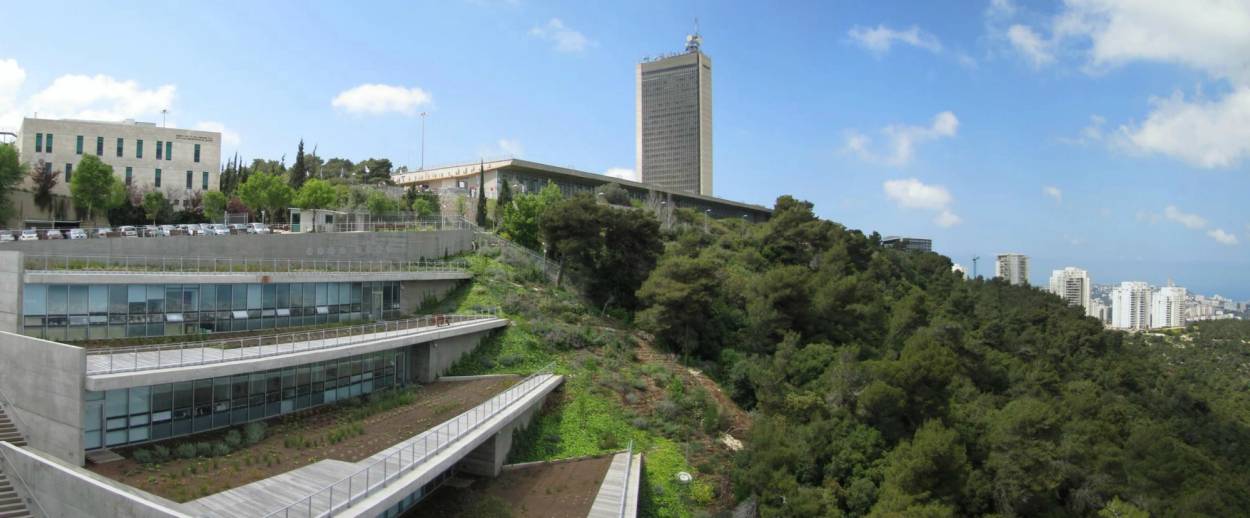Chicago Fund Gives Palestinian Youth Scholarships to Haifa University
Despite challenges and criticism, giving young students a shot at a great education




On September 10, a group of philanthropists made up primarily of Muslims alongside some Jews and Christians met for a quiet fundraising dinner in the West Chicago suburb of Oak Brook. The evening was arranged without a public relations fanfare. There was no hyperventilating build-up on social media touting celebrities or political leaders as keynotes, and members of the press were asked not to attend.
Unlike so many black-tie galas, no one was there to engage in self-congratulatory altruism. Rather, in keeping with the personality and achievements of the event’s co-founder, Grove Financial President Talat Othman, the fundraiser was part of an unpretentious and disciplined business enterprise with the goal of sending between 25 and 30 Palestinian students to the University of Haifa.
One of the Chicago’s most prolific business leaders, Othman arrived in the Windy City from Palestine in 1947, alongside his father and two brothers. He demonstrated a talent for finance, climbed up the corporate ladder, and engaged with various philanthropic organizations. His interest in education eventually led to the founding of the Palestinian Students Scholarship Fund and, when a Jewish friend introduced Othman to the Midwest Director of the American Society for the University of Haifa, Julie Reeder, inspiration struck.
“She talked about the University, its diversified student body and the research the University is doing,” Othman recalled. “She invited me to a dinner with friends of the University and its Rector.”
Intrigued, Othman invited a long-time friend, Ali Ata to join him and, over the next several months, the pair met numerous university representatives, including then-President Amos Shapira.
“Amos was keen on having more Palestinian Students interacting with students of other faiths and ethnicities,” Othman said. “With the large Palestinian population in Haifa, for a variety of reasons, financially challenged, bright students are not able to seek higher education.”
Othman and Ata didn’t immediately leap on the idea of creating a scholarship fund for Palestinian students. There were serious issues with which to grapple and the pair took their time in doing so. One such question involved “overcoming the political implications of doing a project in Israel when we all have properties, relatives, friends in the West Bank under Israeli occupation,” Othman said. “The second [was] the local Chicago Palestinian American community that doesn’t understand our doing scholarships in Israel, an affluent county, while there is a dire need in the West Bank and Gaza.”
Over the next two years, and with the wholehearted support of both Shapira and his successor, Ron Robin, Othman managed to raise enough money to help with the tuition and living expenses of 57 Palestinian students in Haifa.
For some of those students, the going was tough.
Karen Berman is the CEO of the American Society for the University of Haifa—the institution’s US fundraising arm. “The disadvantage that Arab students have is that Hebrew is actually their third language after written and spoken Arabic,” she said. “So, they’re coming to university less prepared. Then, depending on what they’re studying, they also need to learn English. Some come from little villages and they’re the first in their family to leave the village in order to come and study and live with members of the opposite sex. They are also much younger than the Jewish students who go to the military first. So, it’s a huge culture shock and a very different set of circumstances. I’s not just about money, we need to create a supportive environment. That means help with housing like segregated dorms or with Hebrew and English. It’s been a new lens to look through but we’ve had tremendous success.”
Now in its third year, the fund hopes to raise an additional $100,000 by the end of 2017 but the project’s impact is not only be measured in numbers.
Othman quoted some of the thank-you notes he’d received from students who have benefited from the fund.
“’You have given us hope,’” he read. “’Aside from the money, we are grateful to know that we are being thought of and not forgotten. With the scholarship, I now can continue my education and would have made my father who died 10 years ago proud of me.’”
Gretchen Rachel Hammond is an award-winning journalist and a full-time writer for Tablet Magazine.